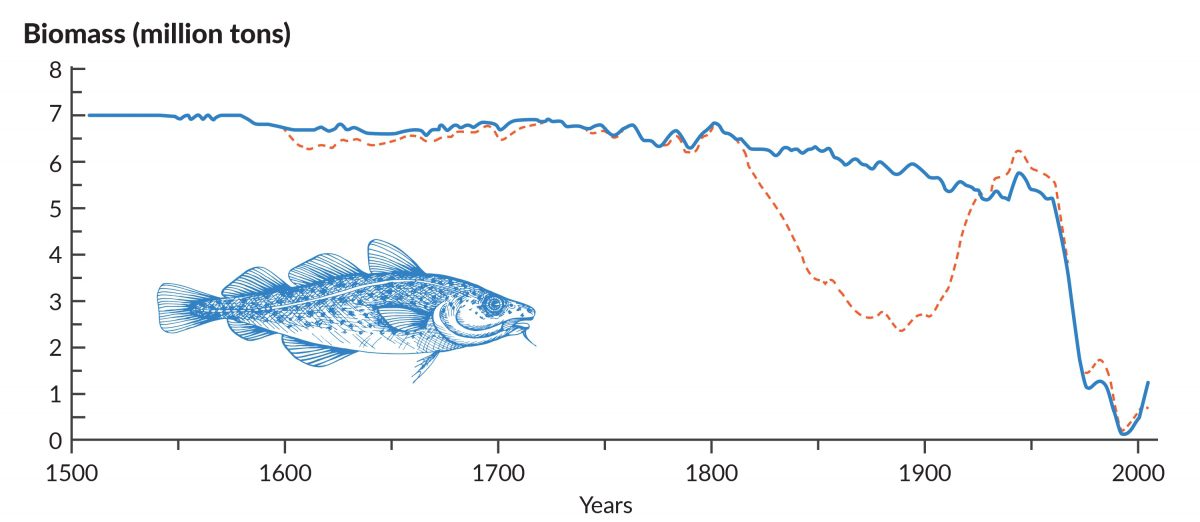Ask Dr. Pauly: What is sustainability?
Estimated reading time: 0 minutes
BY: Daniel Pauly
Topics: Rebuild Ocean Abundance
Originally published in Oceana Fall 2021 Magazine.
Nowadays, everything is supposed to be or become “sustainable,” and sustainability is viewed as inherently good. Indeed, the term sustainable has become so widely used that it has gradually lost most of its original meaning.
Sustainable means (or meant) that something can be maintained at a given level for a long time. Humans usually want to do more of the things they view as positive and fewer of the things they view as negative. Thus, the term “sustainable growth” was coined, which has various complex definitions (Google it!), but is irreparably oxymoronic because nothing in this world can grow for a long time and remain what it is.
Fisheries science and management has a concept of sustainability – called Maximum Sustainable Yield (MSY) – which has been surrounded by controversies. MSY was built on the notion that a fish population exploited by a fishery can, in principle, support a relatively high catch provided that its biomass (or abundance) is not reduced to less than half its unfished level. On this condition (and taking environmental fluctuations into account), a sustained yield can be taken, just as one can in principle, given a reasonably large sum in a bank, live off the interest forever.
In the real world, fisheries are not usually managed to maintain MSY, and most traditionally exploited fish populations have been depleted to levels much lower than that which enable MSY to be taken. For example, the Northern cod of Eastern Canada, which was exploited by European and later Canadian fisheries from 1500 to 1950, yielded 100,000 to 200,000 metric tons per year. However, in the early 1960s, European industrial trawlers set to work on a cod population that had thus far only been exploited using handlines and traps. The catches increased tremendously, reaching 800,000 metric tons in 1968.
Returning to our bank analogy, these trawlers were not just living off the interest: They had broken into the bank’s vaults and were removing massive chunks of the cash.
Predictably, the vast cod population that had supported historic catches collapsed and so did the trawl fishery, which was closed in the early 1990s. The cod population is now so low (even lower than shown in the figure for the early 2000s) that catches as small as 5,000 metric tons per year prevent it from recovering to its previous abundance.

Where does sustainability fit into this conversation? Well, you can maintain a low cod population and a low catch through a “sustainable fishery,” which is what the Canadian fisheries ministry currently does. However, why maintain such a pitiful yield? In such a case, the goal of fishery management should be to rebuild the fish population to its previous abundance, not to sustain its depleted state.
The vast majority of commercially exploited fish populations throughout the world are being depleted. Most of these populations are not being depleted as strongly as the Northern cod, but so much of what we view as “sustaining” fish is actually just maintaining misery. As it happens, the United States is one of the few countries in the world where sustained overfishing is not acceptable. By law, fisheries must rebuild depleted stocks to the MSY level, a policy that other governments globally should emulate.
The book by Oceana CEO Andy Sharpless, titled: The Perfect Protein: The Fish Lover’s Guide to Saving the Oceans and Feeding the World, is based on the logic of countries rebuilding diminished fish populations in their 200-mile Exclusive Economic Zones. This would indeed help feed the world; sustainability alone would not.
Dr. Daniel Pauly is the founder and principal investigator of the Sea Around Us project at the University of British Columbia’s Institute for the Oceans and Fisheries. He is also a member of the Oceana Board.

